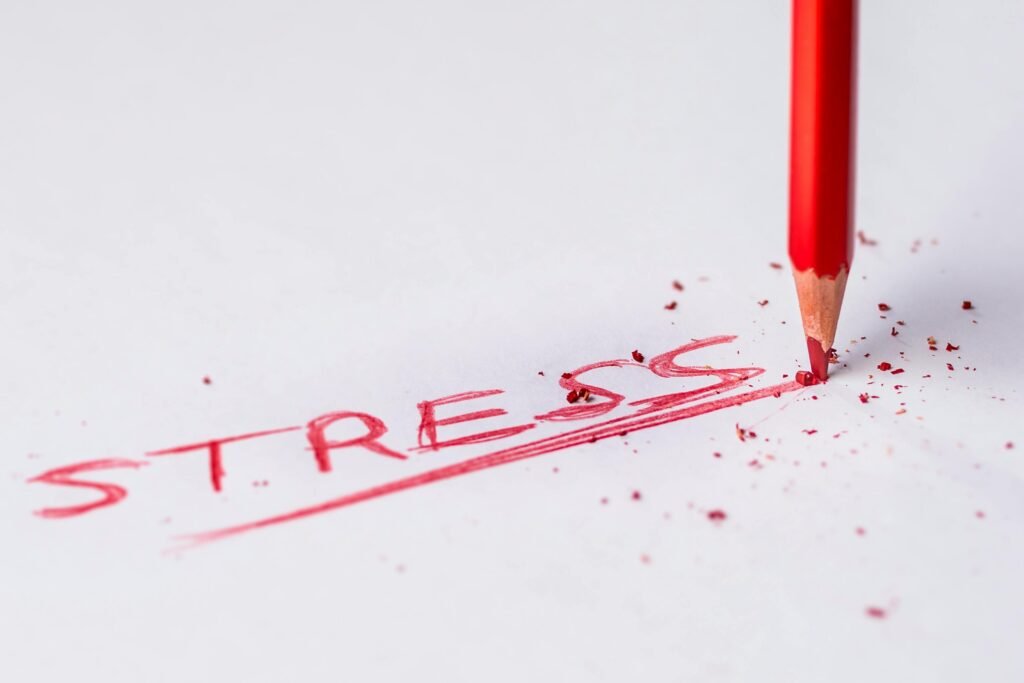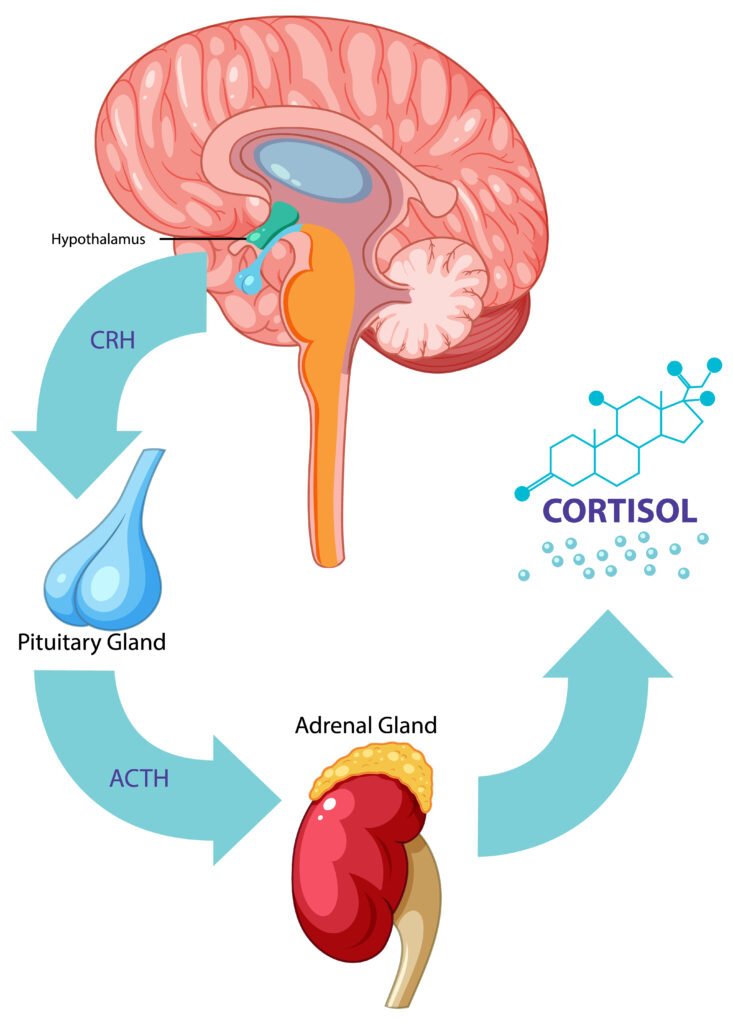Stress is something we all face in today’s fast-paced world. Whether it’s the demands of a busy job, trying to balance personal responsibilities, or worrying about finances, stress has a way of sneaking into our lives. At first, it might feel manageable, but over time, chronic stress can take a toll on both your body and mind. The good news? By understanding what triggers your stress, paying attention to how it shows up, and exploring natural ways to manage it—like supplements—you can take back control and find your balance again.

What Exactly Is Stress?
Scientifically speaking, stress occurs when your brain perceives a threat or demand, whether it be real or imagined, and signals your body to respond. This process involves the hypothalamic-pituitary-adrenal (HPA) axis, which plays a key role in stress regulation.
The Stress Response Begins
- When faced with a stressor, your hypothalamus (a region in your brain) sends a signal to your pituitary gland, which in turn activates your adrenal glands.
- The adrenal glands release stress hormones, primarily cortisol and adrenaline, to prepare your body for “fight or flight.”
The Biological Changes
- Heart Rate and Blood Pressure Spike: Adrenaline increases your heart rate and blood pressure, ensuring oxygen and nutrients are quickly delivered to your muscles.
- Energy Mobilization: Cortisol boosts glucose levels in your bloodstream, providing a quick energy source for your brain and muscles.
- Suppression of Non-Essential Functions: To focus energy on survival, processes like digestion, immune function, and reproduction slow down temporarily.
The Stress Feedback Loop
- Once the threat is gone, the HPA axis signals the body to return to a balanced state (homeostasis). However, when stress becomes chronic, this feedback loop can falter, leading to persistently elevated cortisol levels.


